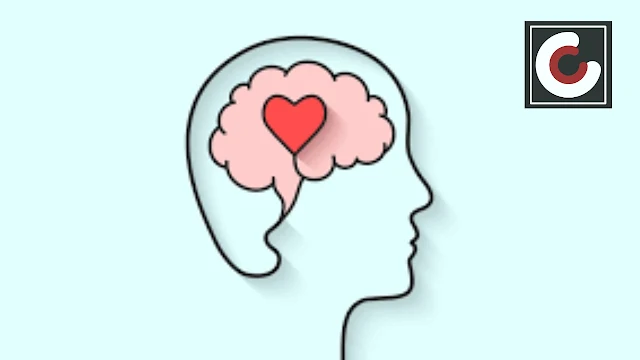what are 3 causes of mental disorders .It's important to note that mental disorders are complex and multifaceted, and a combination of factors often contributes to their development. Chemical imbalances are just one piece of the puzzle, but recognizing and addressing them can be a significant step towards managing and improving mental well-being.
 |
| what are 3 causes of mental disorders |
What is psychopathy?
Psychopathy is a mental disorder characterized by enduring antisocial behavior, diminished empathy and remorse, and bold, disinhibited, and egotistical traits. Individuals with a family history of psychopathy are more likely to exhibit psychopathic traits themselves.
There are some herbs that may be useful in maintaining mental health, such as: sibukaw
Types of mental illness
There are various factors that can contribute to the development of mental disorders, and genetics is one of them. Research has found that certain genes may increase the susceptibility to mental health conditions such as depression, anxiety, bipolar disorder, and schizophrenia.this information is essential to know the answer to a question what are 3 causes of mental disorders ?
These genetic variations can affect brain chemistry and the functioning of neurotransmitters, leading to imbalances that contribute to the manifestation of mental illness.
In conclusion, while genetics is just one of the causes of mental disorders, it is an important factor to consider in understanding the origins and development of these conditions. By recognizing the role of genetics, researchers and healthcare professionals can work towards more targeted interventions and support for individuals affected
what are 3 causes of mental disorders ?
- Biological factors: Genetic predisposition can play a significant role in increasing an individual's vulnerability to mental disorders. Certain genes may contribute to the development of conditions such as depression, anxiety, or schizophrenia. Additionally, imbalances in brain chemistry or hormonal fluctuations can also impact mental well-being.
- Environmental factors: Exposure to stressful or traumatic events, such as abuse, neglect, or the loss of a loved one, can significantly contribute to the development of mental disorders. Other environmental factors, such as poor living conditions, limited access to resources, or ongoing discrimination, can also have a negative impact on mental health.
- Social and cultural factors: Social support and connectedness are crucial for maintaining good mental health. Isolation, loneliness, and a lack of supportive relationships can increase the risk of mental disorders. Cultural factors, such as societal expectations, stigma, and cultural norms around mental health, can also influence the development and expression of mental disorders.
This is the 3 causes of mental disorders While these factors play a role in the development of mental disorders, it is essential to remember that they interact with each other and individual experiences, making each person's mental health journey unique. Seeking professional help, building a supportive network, and practicing self-care can significantly contribute to managing and preventing mental disorders.
Chemical Imbalance
- When it comes to mental disorders, there are several factors that can contribute to their development. One of the key causes is a chemical imbalance in the brain.
- When these neurotransmitters are out of balance, it can lead to various mental disorders such as depression, anxiety, or bipolar disorder.
Imbalanced brain chemistry and mental disorders
- An imbalanced brain chemistry can occur due to a variety of reasons, including genetic predisposition, trauma, or environmental factors. This imbalance disrupts the normal functioning of the brain, affecting the way we think, feel, and behave.
- Understanding the role of chemical imbalances in mental disorders is crucial for effective treatment. By targeting these imbalances through therapy, medication, or other interventions, individuals can find relief and regain control over their mental health.It is one of the most important pieces of information we need to answer a question what are 3 causes of mental disorders ?
Could the causes of psychopathy be genetic?
Interaction of genetics, environment, and brain chemistry in mental disorders
Mental disorders can have complex causes, including a combination of genetics, environmental factors, and brain chemistry. While there are numerous mental disorders, here are three examples that may have these underlying causes:
- Schizophrenia: Research suggests that genetics, combined with certain environmental factors, may increase the risk of developing schizophrenia. Changes in brain chemistry, specifically an imbalance in some neurotransmitters, have also been linked to this disorder.
- Major Depressive Disorder: Genetic factors play a role in the development of major depressive disorder, but environment and life events also contribute significantly. Brain chemistry imbalances, particularly in serotonin levels, are believed to be involved as well.
- Anxiety Disorders: Both genetic factors and environmental influences, such as traumatic experiences, can contribute to the development of anxiety disorders. The brain's response to stress and abnormalities in neurotransmitter function are also associated with these disorders.
Importance of mental health
After we have adequately answered a question what are 3 causes of mental disorders ?in our global clinic healthy site, which specializes in psychiatry, we can say understanding the causes of mental disorders is crucial for promoting mental health and offering appropriate support and treatment. Recognizing the interplay between genetics, environment, and brain chemistry helps healthcare professionals develop personalized interventions. Additionally, raising awareness about mental health can reduce stigma and encourage individuals to seek help when needed. Building a supportive and inclusive society that prioritizes mental well-being is essential for addressing mental disorders and improving overall quality of life.

